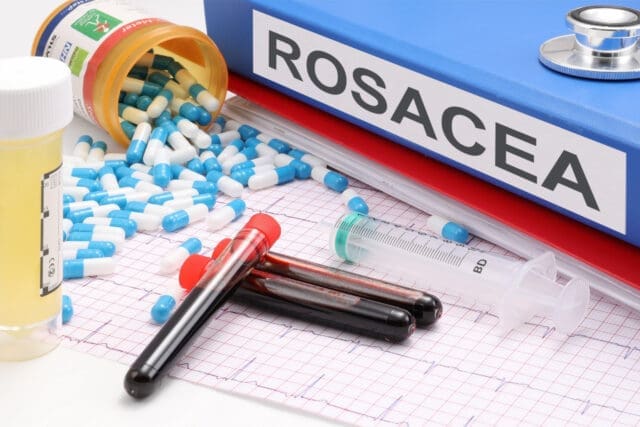When first diagnosed with rosacea, the world can soon become a confusing place as you discover your rosacea’s various triggers and causes. If you have dealt with rosacea for many years, you will know how certain foods, products, and activities can trigger a rosacea flare-up, taking you a few steps back in your journey treating rosacea. While working with your doctor or dermatologist to find a rosacea treatment that works for you, here are some things to avoid throughout this process.
How certain foods can trigger your rosacea
You may have heard of the ‘rosacea diet’ in your quest in treating your rosacea and to reduce your flare-ups. Many patients have found that a range of foods seems to trigger their rosacea, worsening their symptoms. This will, of course, differ from patient to patient due to the different causes of rosacea. However, the most frequently reported foods and drinks which seemed to trigger a flare-up amongst a study of rosacea patients included:
- Spicy foods
- Dairy
- Alcohol – Alcohol can cause widening of the blood vessels in the face, increasing blood flow to this region increasing rosacea symptoms.
- Marinated meats
- Certain fruits such as those high in histamine
For many people, it can be hard to identify individual triggers, which can be very frustrating. Many rosacea patients have reported that food tracking on a month-to-month basis is one of the easiest ways to identify which foods seemed to have caused the biggest skin reaction.
Other rosacea triggers found amongst rosacea patients
Several other triggers can sometimes be found in rosacea patients too. These can include the following.
- Sun exposure
- Emotional stress
- Hot weather
- Wind
- Heavy exercise
- Hot baths
- Cold weather
- Humidity
- Indoor heat
- Certain skincare products
Of course, it can be incredibly difficult to avoid these particular triggers. However, there are certain ways a rosacea patient could prevent a flare-up.
For example, keeping covered in the sun and using plenty of SPF or finding a skincare routine recommended by a dermatologist rather than OTC products.
Causes of Rosacea
To understand why there are a variety of triggers for rosacea, it is important to note the various potential causes of this skin condition (although a clear cause is still unknown). Below are clues scientists have identified in rosacea patients which could be causing this skin condition:
- Genetics: People with rosacea often have family members who have it. It does not seem to have a clear pattern of inheritance.
- H. pylori bacteria: studies have found that H. pylori bacteria are closely related to rosacea.
- Abnormal Blood Vessels: The blood vessels are small and dilated, which is the major factor causing facial redness.
- Demodex folliculorum (microscopic mites): People with rosacea can have these microscopic mites in larger numbers on the skin of rosacea sufferers. The microscopic mites may play a role in causing the condition.
Rosacea treatment options
Although so much research has been done into what exactly causes rosacea, since this is still relatively unclear amongst rosacea patients, there is no complete cure for this skin condition. Much like many other skin conditions, it is unclear why some people experience this within their lifetime, and others do not. There are several treatment options available to reduce the redness and irritation. For many rosacea patients, the treating process is a long journey that requires much trial and error and lots of patience.
Featured Nick Youngson CC BY-SA 3.0 Pix4free.org




